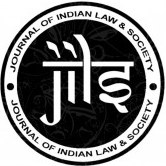by Promit Chatterjee
Responding to Enhancing Good Governance in India: Law Schools and Community-University Engagement by Jane Schukoske & Roopali Adlakha [3 (Monsoon) JILS 206 (2012)]
Of late, the term “good governance” is being increasingly used in development discourse as a driving factor behind the inclusive growth of the society and its populace. Though the term itself is self-explanatory and may constitute the gamut of best practices of societal administration, it has a specific connotation in development discourse in the sense that it refers to the capability of citizens, civil society organizations and other non state actors to hold the state accountable and make it responsive to their needs.
The most fundamental example of such good governance initiatives in the Indian context that comes to my mind is the three-tier Panchayati Raj Institutions that were commissioned by the 73rd Constitutional Amendment to formalize rural local self-governance. I would not like to go into any debate regarding the success or failure of PRIs towards attaining their mandated goals. Nevertheless, it is suffice to say that in addition to these formal democratic systems of grass-root government, external agencies such as civil society organizations, citizen support groups, public-funded institutions, etc. have an important role in advancing the cause of good-governance by active community-engagement at a micro-level.
In this context, Jane Schukoske and Roopali Adlakha’s paper highlights the role of Indian law schools in furthering community university engagement in order to enhance good governance at the grassroots level by fighting injustice and improving the delivery of entitlements to meet basic needs in disadvantaged communities. They elaborately examine the different legislations empowering law schools to involve students in legal aid clinics and study the role of these student centric organizations to fulfil the educational and societal development objectives of law schools.
However a pressing problem with respect to the effective functioning of legal aid clinics in law schools as facilitators of dispute resolution lies in the fact that the professors leading these clinics, with the aid of students, cannot appear before courts or tribunals to plead the cases of those who seek their assistance at the clinics. This is because as per the regulations of the Advocates Act, professors who are in full-time employment with their parent universities, de facto have their Bar Council licences temporarily suspended, and are not permitted to appear as advocates before any judicial forum. Two notable exceptions to this archaic norm are disputes before consumer fora (which do not statutorily require representation by lawyers) and public interest litigations before the higher judiciary (where the professors or even the students associated with the legal aid clinics can appear as party-in-person).
With respect to consumer rights activism, law schools have already taken great strides. The NUJS Legal Aid Society, with the help of its Faculty Advisors regularly defends cases before the District and State Consumer Rights Fora in West Bengal, which are referred to it by the Consumer Affairs Department of the state, based on their potential to form judicial precedents. A group of students of the National Law School of India University at Bangalore, under the patronage of its Ministry of Consumer Affairs Chair has even successfully claimed compensation from FMCG major PepsiCo for its illegal practice of differential Maximum Retail Pricings.
However such enthusiasm is not quite reflected in case of PILs. A possible cause of this inaction may lie in the fact that PILs are more often than not, based on local issues and directed towards the inefficiency or malpractices of the State government administration. Since most national law schools receive substantial funding from their respective State Governments and are not financially independent, the legal aid clinics and most importantly the University authorities do not support such institutional filing of PILs in the apprehension of antagonizing the State government.
Moreover, since the legal aid clinics are only a subsidiary aspect of the main function of the universities as centres of knowledge creation and dissemination, the members of such clinics do not even have sufficient resources or time to pursue the role of a full-fledged lawyer.
Therefore in the light of the ground realities, I feel that the best way forward for the legal aid clinics would be to actively engage with the communities and empower them consequently to defend their own legal rights, instead of taking up individual cases of non-governance on a regular basis. Jane and Roopali’s paper has elaborately discussed about one such initiative—the Good Governance Now Project of IRRAD and Jindal Global Law School, Haryana. Besides, the National Legal Services Authority has initiated an ambitious scheme of Para Legal Volunteer Training whereby it is collaborating with law schools across the country. Under this scheme, volunteers are identified and selected from certain target groups who in turn act as harbingers of legal awareness and legal aid to all sections of people. NUJS Kolkata had recently conducted one such training programme of Para Legal Volunteers selected from Birbhum District of West Bengal.
Such training programmes, coupled with periodic legal awareness camps, would definitely go a long way in enhancing good governance in local communities, as envisaged by Jane and Roopali’s paper.
(Promit Chatterjee is currently the Treasurer of the Legal Aid Society at the National University of Juridical Sciences, Kolkata)
